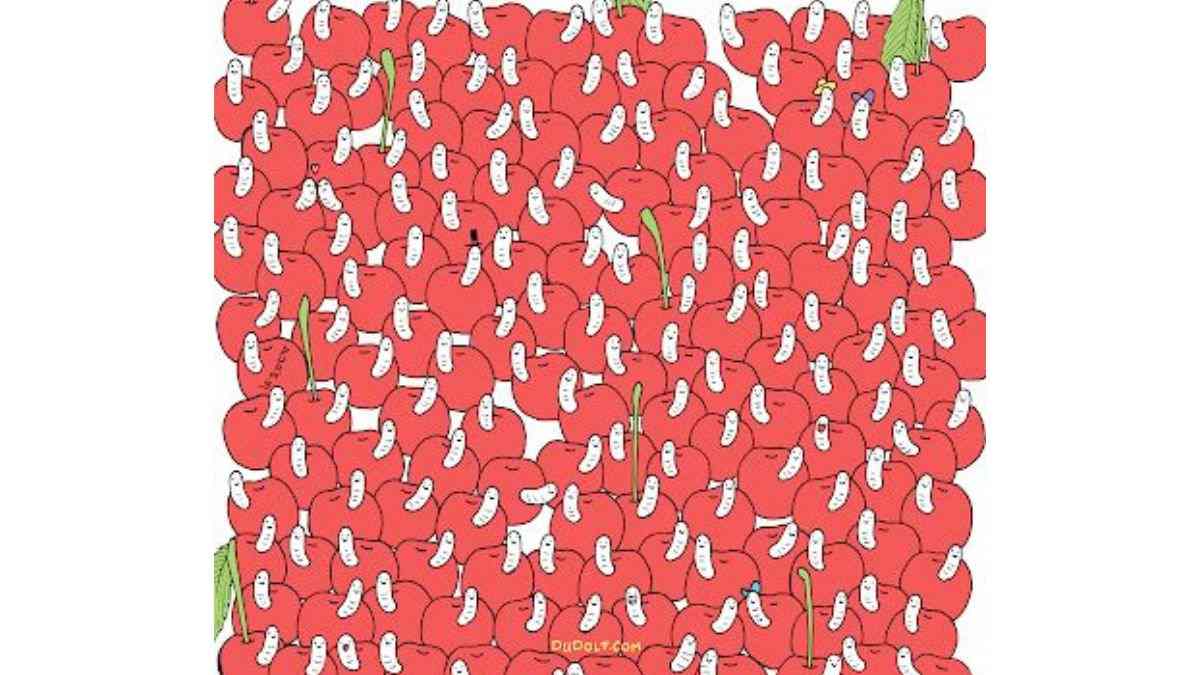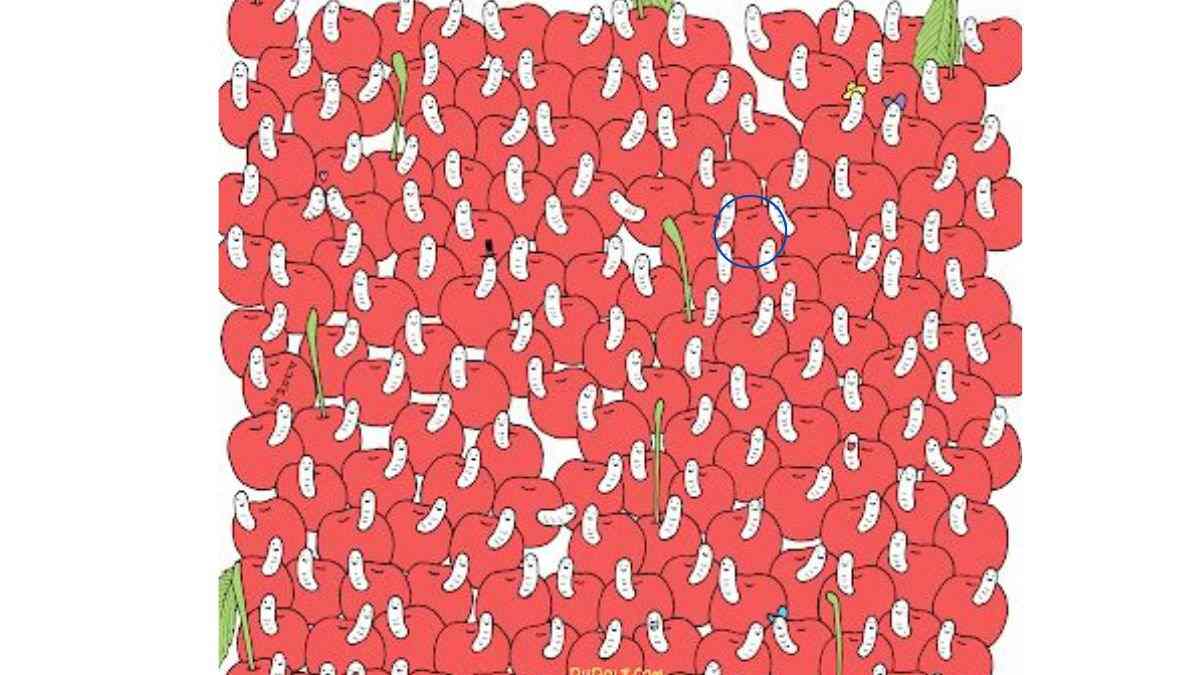Odd One-Out: Odd one-out puzzles are not only educational but also entertaining. They can be enjoyed as leisure activities, providing mental stimulation and a sense of accomplishment when solved. They are also suitable for group activities and can foster social interaction and collaboration.
 Source: Dudolf.com
Source: Dudolf.com
In contrast to the above image, your task is to spot the fresh cherry hidden in the rotten basket.
Can you find the fresh cherry hidden in the picture?
Odd one-out puzzles often involve visual elements, such as shapes, colours, or objects. By identifying the odd element, individuals improve their visual discrimination skills, which are crucial in various fields such as art, design, and visual perception.
These puzzles require individuals to pay close attention to details and identify subtle differences among multiple options. This enhances their observation skills and attention to detail, which are valuable in various professions, including research, quality control, and problem identification.
Paws and Puzzles! Spot the odd puppy within 9 seconds in this Animal Edition Odd One Out. Hurry Up!
About this Odd One Out Puzzle Picture
The is created by Gergely Dudas and is available at Dudolf.com. Solving these puzzles can improve vocabulary, language comprehension, and semantic understanding. It helps individuals think critically about word associations, meanings, and relationships.
Remember you just have 31 seconds to conclude this mental exercise.
Solving odd one-out puzzles requires logical thinking, pattern recognition, and analytical skills. It challenges the brain to identify differences and similarities, promoting cognitive development and improving problem-solving abilities.
Tick…
Tock…
Tick…
Look for the Odd One Out Puzzle answer here:
 Source: Dudolf.com
Source: Dudolf.com
Odd one-out puzzles offer a range of cognitive, analytical, and educational benefits. They promote critical thinking, improve cognitive skills, enhance visual discrimination, and provide entertainment, making them valuable tools for personal growth and development.
Comments
All Comments (0)
Join the conversation